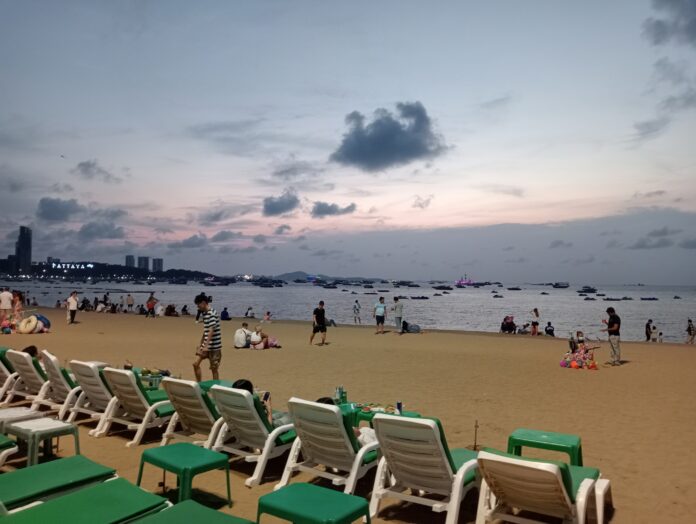
Since the restart of the Test & Go programme on Feb 1, the Thai government has issued more than 100,000 applications, yet efforts to revive tourism still face many hurdles.
What is the new Test & Go programme?
Test & Go is a quarantine waiver programme that aims to attract fully vaccinated travellers from any country to Thailand. The programme was recently revised and resumed on Feb 1, 2022, following a suspension at the end of December.
The revised Test & Go programme requires travellers to take two RT-PCR tests and have two nights of SHA Extra Plus accommodation bookings.
The first PCR test is taken on arrival and the second one on the fifth day. Travellers must wait at their SHA Extra Plus hotel each day for negative test results before they can roam freely.
In other words, travellers can roam around on days 2-4 if the PCR result from Day 1 is negative. For Day 5, travellers must return to an SHA Extra Plus accommodation for a second PCR test. Once the result from the second PCR test is negative, travellers can exit isolation.
Why did the government suspend the scheme earlier?
Registration for the original Test & Go scheme was suspended in December 2021 because of the spread of the Omicron variant.
The government opted for a compromise between tourism revenue and fears of a new Covid-19 outbreak. The scheme had proven a popular means of entering Thailand, with only one night of quarantine while waiting for a test result.
What are the challenges for the new Test & Go scheme?
Marisa Sukosol Nunbhakdi, president of the Thai Hotels Association, said the main challenges with the new Test & Go programme are extra responsibilities for hotels to ensure guests show up on Day 5 and perform a second PCR test, a shortage of SHA Extra Plus rooms in key destinations other than Bangkok and Phuket, and the lack of a government option for "hotel room isolation" for travellers outside Phuket.
"Hotels must ensure guests come in on the fifth day to stay and get their PCR test. This is our responsibility. The second PCR test means more costs for travellers and contemplating where they will stay, which means developing an itinerary if the location on Day 5 is different than the first day," said Mrs Marisa.
"Some Thais check in on the first day and then go to their home provinces such as Khon Kaen or Phitsanulok, where there are no hotels certified as SHA Extra Plus. They don't have deals with hospitals, so they can't arrange the RT-PCR test. The government needs to approve more SHA Extra Plus hotels in different provinces."
She said most insurance companies do not fully cover hospital expenses for an extended period of a travellers' original itinerary should they test positive for Covid-19.
"Sometimes, if travellers are asymptomatic, the insurance will not cover their hotel stay," said Mrs Marisa.
"We need the Public Health Ministry to allow travellers to stay in a hotel. Phuket has a scheme for this called hotel room isolation that allows those testing positive to stay in their original hotel and receive care via tele-health. We need this policy in Bangkok and other key destinations."
What were the top source markets in January?
Some 185,037 visitors arrived in Thailand by air from Jan 1 to 30. Russians were the largest group with 19,450, followed by 11,469 Germans, 10,458 Americans and 10,091 Britons, said Taweesilp Visanuyothin, spokesman for the Center for Covid-19 Situation Administration.
The top five destinations for scheme participants were Bangkok, Phuket, Chon Buri, Samut Prakan and Surat Thani.
What are the pre-arrival requirements for the new Test & Go scheme?
Thailand Pass registration
A negative PCR test no more than 72 hours before travel to Thailand
Health insurance with coverage of at least US$50,000
Proof of payment for two separate nights of accommodation at SHA Extra Plus hotels
A Covid-19 vaccination or recovery certificate



Inga kommentarer:
Skicka en kommentar